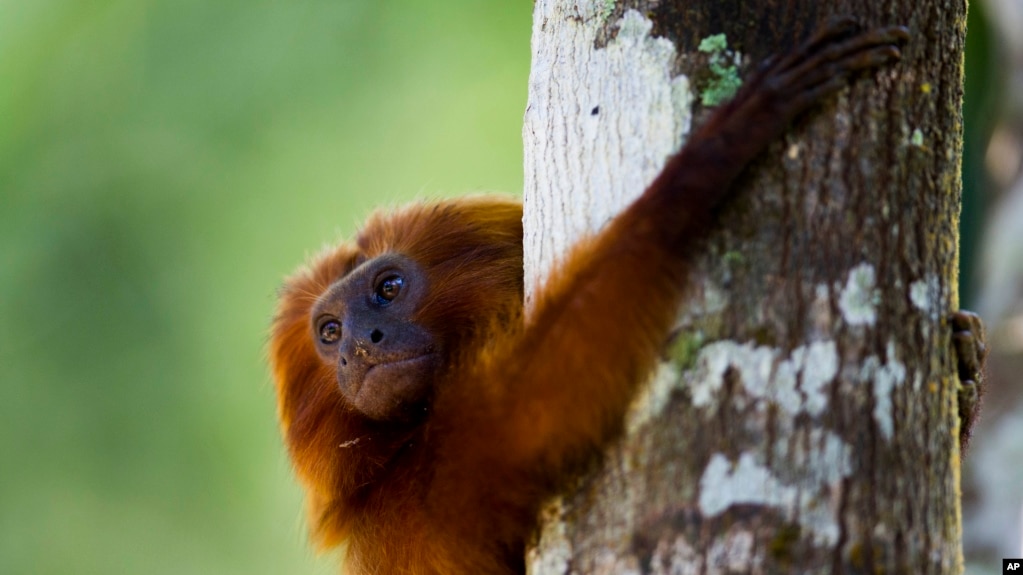世界は求む!!!ツリーハガー!!
Words and Their Stories!!
環境保全、何ができるか!!!
世界はもっとツリーハガー(環境保護主義者)を必要としている
The World Needs More Tree Huggers
木は世界に多くのものを与えてくれます。二酸化炭素や日陰を作ってくれます。動物や昆虫にシェルターを提供してくれます。
また、木は貴重な資源でもあります。樹木が提供してくれる木材は、建物や私たち人間が使用したり必要としている他の製品に使われています。
樹木は非常に重要なので、樹木を守ることを目標にしている人もいます。私たちは、このような人々を "ツリーハガー "と呼ぶことができます。
言葉の専門家によると、この言葉が最初に登場したのは1900年代だそうです。森林保護を支持し、伐採に反対する人々、つまり木材のためにその地域の木を伐採する行為に反対する人々のことを指します。
今日では、”ツリーハガー”という言葉は、環境保護主義者を表しています。彼らは自然や環境を保護したいと考えていますが、木だけではありません。希少な蝶々の保護や温室効果ガスの削減を目指す人も”ツリーハガー”と表現されるかもしれません。
誰かを”ツリーハガー”と呼ぶことは、必ずしも褒め言葉とは言えません。以前の時代では、実際には侮辱として使われていました。”ツリーハガー”は、極端な人、木や動物、自然界の他の部分を保護することを過度に気にしている人を表現していました。
ツリーハガーの中には、木を守るために極端なことをする人もいます。例えば、ジュリア・ロレイン・ヒルという女性を見てみましょう。彼女はジュリア・"バタフライ"・ヒルとしても知られています。彼女はアメリカの環境活動家です。
1997年12月10日から1999年12月18日までの738日間、ヒルは木に住んでいました。しかし、どんな木でも良いわけではありません。彼女はルナ、カリフォルニア州北部のフンボルト郡にあるレッドウッドの木に住んでいたのです。
ルナは、高さほぼ61メートル、横断距離約12メートルと広大です。この古代のレッドウッドは、フンボルト郡に1000年以上も前から立っていました。しかし、パシフィック・ランバー・カンパニーがそれを伐採しようとするのを止めることはできませんでした。
だから、ヒルは、ヒルは極端なツリーハガーがすることをしました。- そこに移住したのです!
ヒルは2年以上木に住んでいました。サンクチュアリフォレストのウェブサイトによると、太平洋木材会社が特別保護協定を結んでルナを保護することに合意したときに、彼女は木から降りてきただけだと説明されています。
ウェブサイトで説明されているように、ヒルの主な目的は "自然資源の保護と回復の重要性に国際的な注目を集めること "でした。
つまり、私たちはヒルをツリーハガーと呼ぶことができます。そして、彼女はそれを最高の賛辞と考えるでしょう。
以上で、この「言葉とその物語」は終わりです。
レッドウッド国立森林公園
The World Needs More Tree Huggers
 A golden lion tamarin hugs a tree in the Atlantic Forest region of Silva Jardim in Brazil's state of Rio de Janeiro, October 2012. (AP Photo/Felipe Dana)
A golden lion tamarin hugs a tree in the Atlantic Forest region of Silva Jardim in Brazil's state of Rio de Janeiro, October 2012. (AP Photo/Felipe Dana)
And now, Words and Their Stories, from VOA Learning English.
Trees give so much to the world. They create carbon dioxide and shade. They provide shelter to animals and insects.
Trees are also a valuable resource. The wood they provide is used for buildings and other products we humans use and need.
Trees are so important that some people have made it their goal to protect them. We (can) call these people “tree huggers.”
Word experts say this term first appeared in the 1900s. It describes people who support the protection of forests and oppose logging – the act of cutting down trees in an area for their wood.
Today, the term “tree hugger” describes a person who is an environmentalist. They want to protect nature and the environment – but not just the trees. Someone who wants to save a rare butterfly species or cut greenhouse gases could also be described as a tree hugger.
Calling someone a “tree hugger” is not always seen as a compliment. In earlier times, in fact, it was used as an insult. “Tree hugger” described someone who was seen as extreme, someone who was overly concerned about protecting trees, animals and other parts of the natural world.
Some tree huggers do go to extremes to protect trees. Take, for example, a woman name Julia Lorraine Hill. She is also known as Julia "Butterfly" Hill. She is an American environmental activist.
For 738 days from December 10, 1997 and December 18, 1999, Hill lived in tree. But not just any tree. She lived in Luna, a Redwood tree in northern California’s Humboldt County.
Luna is huge, measuring nearly 61 meters tall and about 12 meters across. The ancient redwood has stood in Humboldt County for more than 1,000 years. But that did not stop the Pacific Lumber Company from wanting to cut it down.
So, Hill did what any extreme tree hugger would – she moved in!
Hill lived in the tree for just over two years. The Sanctuary Forest website explains that she only came down from the tree when the Pacific Lumber Company agreed to protect Luna with a special conservation agreement.
As the website explains, Hill’s main goal was “to bring international attention to the importance of protecting and restoring natural resources.”
So, we can safely call Hill a tree hugger. And I’m sure that she would consider that the highest of compliments.
And that’s the end of this Words and Their Stories.
Until next time … I’m Anna Matteo!
________________________________________________________________
Words in This Story
species – n. biology : a group of animals or plants that are similar and can produce young animals or plants : a group of related animals or plants that is smaller than a genus
compliment – n. a remark that says something good about someone or something
activist – n. a person who uses or supports strong actions (such as public protests) to help make changes in politics or society
lumber – n. wooden boards or logs that have been sawed and cut for use
restore – v. to put or bring back to an earlier or original state
conservation – n. the protection of animals, plants, and natural resources